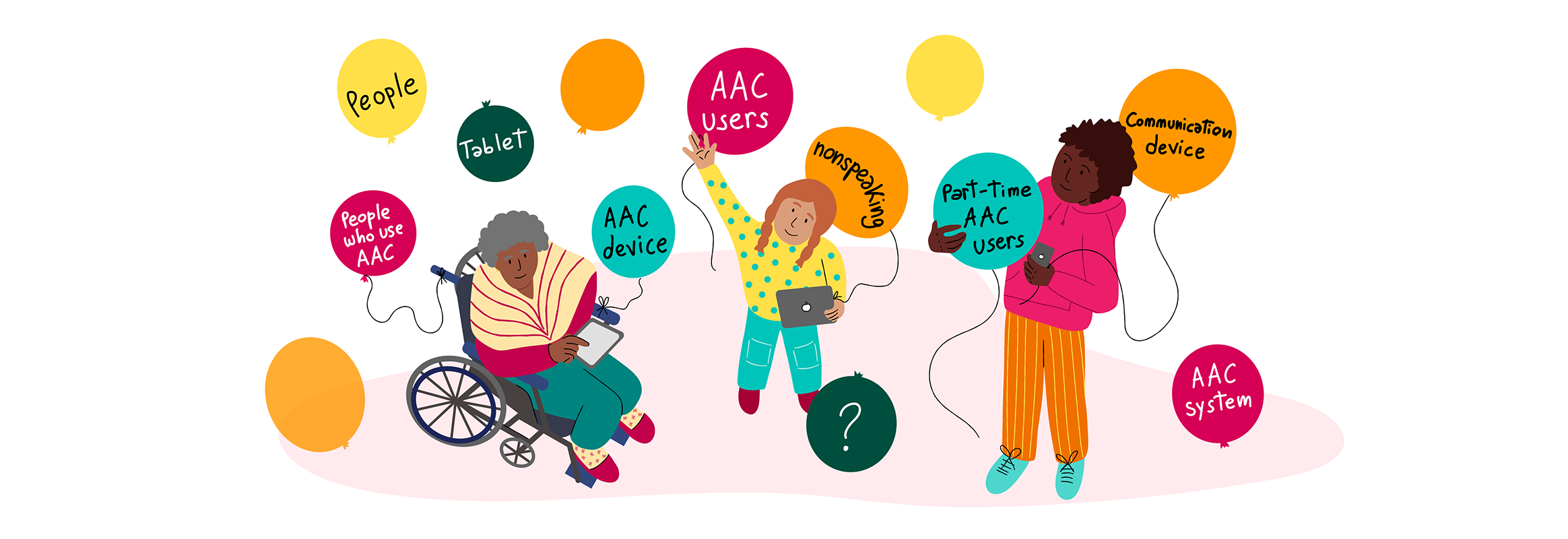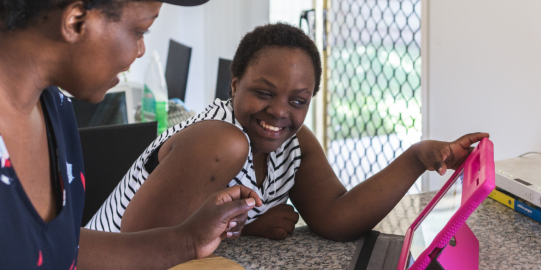We, Alyssa Hillary Zisk and Lily Konyn, know which of these AAC definitions we prefer, but we’re only two AAC users. Our language preferences matter when people talk about us. But if we want to know how to talk about AAC users as a group, it’s not enough to know what we like. It’s not even enough to know what our friends like. We need to know what a lot of people prefer.
So we asked.
AAC terminology survey
In early 2022, AssistiveWare ran an online survey, asking people with a variety of relationships to AAC what they thought about 119 different words and phrases. The first research of its kind, our survey resonated deeply with the community—in total 556 people participated.
We reached out through many channels to make sure the respondents in the survey represented the community at large. We picked the terms in the survey based on the language we saw in AAC-focused social media groups, advocacy organizations, and academic publications.
One out of every three people who took the survey uses AAC. Of these, nearly a fifth (18%) do not use spoken words. Unless we say otherwise, this blog is talking about the perspectives of the 169 participants who use AAC. A future blog post will take a closer look at the perspectives of people who do not use AAC themselves.
AAC user opinions at a glance
Do say:
✅ AAC user
✅ People who use AAC
✅ AAC device. Device, iPad, or tablet are fine too.
✅ Nonspeaking when referring to nonspeaking people as a group.
✅ When speaking with one person, ask what they prefer.
✅ People (when talking about groups of people). Not clients, consumers, or patients.
Don’t use:
❌ Deficit-based terminology, such as people with highly unintelligible speech, or speech deficit.
❌ Acronyms, except for AAC itself.













































